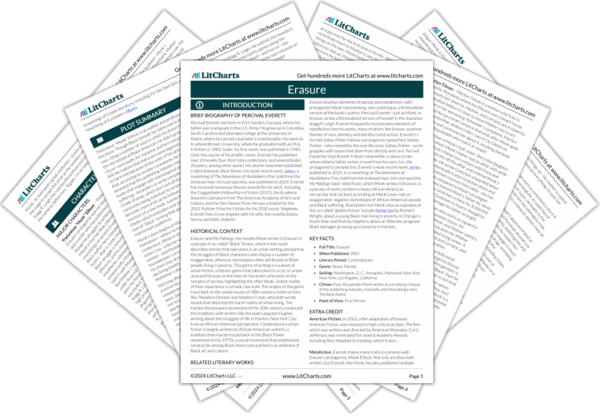Monk’s father did not uphold his obligation to support Gretchen, and as a result, she has not had the life of opportunity and privilege that Monk and his siblings had. Monk’s uncomfortable meeting with Gretchen further challenges Monk’s previous assumptions about his father. It also adds nuance and complexity to the novel’s examination of race and privilege. Gretchen may be passably white, but her poverty has held her back where Monk’s relative wealth has allowed him to circumvent some of the roadblocks that systemic racism would otherwise throw his way.
